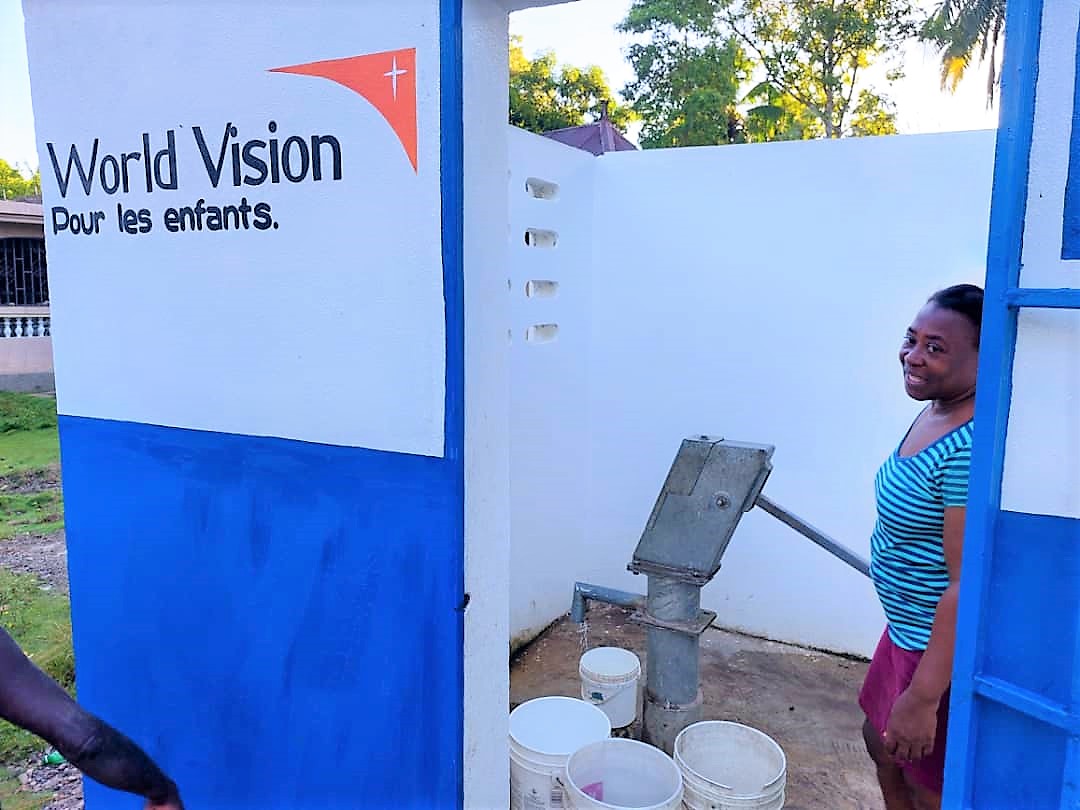Access to clean water, a source of hope for this community

Duty used to be classified as one of the red zones in the region in terms of WASH. However, the more than 3,000 inhabitants of this community did not have access to drinking water, there were no sanitary blocks in the schools... and thereby, the population was forced to travel several kilometers by road to obtain drinking water, or else the vast majority was content to consume water from the river.

This situation has caused an increase in the number of illnesses related to the consumption of contaminated water in the area. Indeed, Emmanuela Toussaint, a nurse working at the Methodist Health Center of Tovar since October 2017, tells of witnessing numerous cases of typhoid, diarrhea, scratches, and especially intestinal parasitosis in children within the community. "One of the elements that can cause this very sad situation is the population's use of river water. Poor sanitation and unsafe water increase the risk of catching parasites," she explains.
In 2020, World Vision staff met with community members, including a group of religious leaders, to find a sustainable solution to this issue. Given the magnitude of the situation, and especially the serious consequences for the children's health, the organization took no time to respond. One year later, in August 2021, thanks to the interventions of World Vision through its Area Program (PZ) in Laplangne, a drinking water point was established in Duty.
"Before, we tried to give people tablets used in water treatment as a response, but this was not enough. I must admit that this water point set up by World Vision really supports our work as health workers in the community. Today, Duty and its surroundings have access to clean water. And I can already say that the first results are positive as the number of sick children is starting to decrease. I hope that progress will continue in this direction," says Emmanuela.
In fact, the Tovar health center used to receive between 15 and 20 cases of children sick with parasites and other waterborne diseases per day, according to Nurse Toussaint. "But for some time the cases have been decreasing, we receive – sometimes – no more than two cases of parasitosis per week," she says.
"Except for scratch, we are still in the 50 cases per week. In relation to this, it is necessary to raise awareness to encourage people not only to drink clean water, but also to use it for bathing and laundry," she admits.
Speaking of awareness, this is one of the key aspects used by World Vision through the assistance provided in the communities. In this case, in addition to building the water point, local staff ensure that the population understands the importance or necessity of abandoning the consumption of dirty water in favor of drinking water.
"Whether it is during our visits to local schools, during our meetings with mother leaders, youth groups and community associations... we always expect our community agents to pass on the message of awareness of the dangers of drinking unsafe water. Because we know that this reinforces our actions in this sense," says Esmeralda Guillaume, AP Supervisor of the Laplangne Zone Program.
“Our children are no longer in danger...”
Mrs. Floreal Clermont has lived in the community of Duty for 48 years, she testifies to the positive impact of the water point on families and especially, on the children residing in the area. Considering the benefits her family, especially her three children, have received from the construction of this water point, she says: “World Vision will leave a gratifying mark in the memory of the people of Duty.”
"Here in Duty, fetching water from the river and sometimes waiting for rain have been the only two choices for the local people. This is for any need: washing, drinking, and preparing food... It has been a great sanitary risk since the river water is filled with animal excrement. But today, thanks to World Vision, the health of our children is no longer in danger. I can guarantee you that. They don't get sick as often as they did when we didn't have access to clean water," she says.
Gaelle, a 10-year-old sponsored child, is the youngest of Mrs. Clermont's three children, and she thanks World Vision for "this wonderful gift" to the Duty community. She expressed herself as follows: "This water point is very useful to me, my family and all my friends in the neighborhood.” Indeed, she says, "I can now find water to drink, my mom can find water to use for cooking and washing without having to travel long distances to find it.”
"Sometimes I used to go to school without bathing or resign myself to taking only one bath a day because there was no water in Duty," Gaelle explains. Related to this, Mrs. Clermont confirms that her daughter was not the only one to face this situation, but that it was also the case for all the other children in the area.
The Duty water point serves more than 100 families. Some of them come from neighboring communities. According to Mrs. Clermont, some people who live in places where there are water points still decide to come to Duty because "it's better structured here. It's well secured. There is a fence that prevents animals from entering here to defecate," she says.
"Besides the fact that World Vision saves us the fatigue of walking several kilometers to find water and protects the health of our children, the organization has given us a quality donation," she adds.
In Ms. Clermont's opinion, World Vision has given something "concrete" to her community. "Even if one day the project stops, everyone will see its mark in the region."